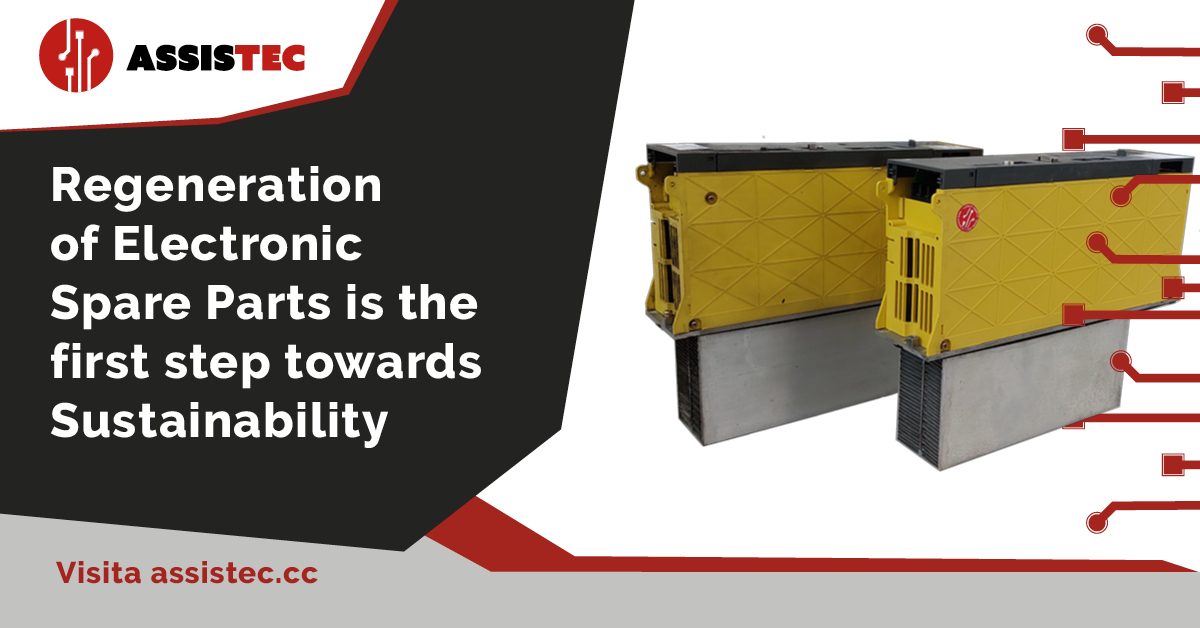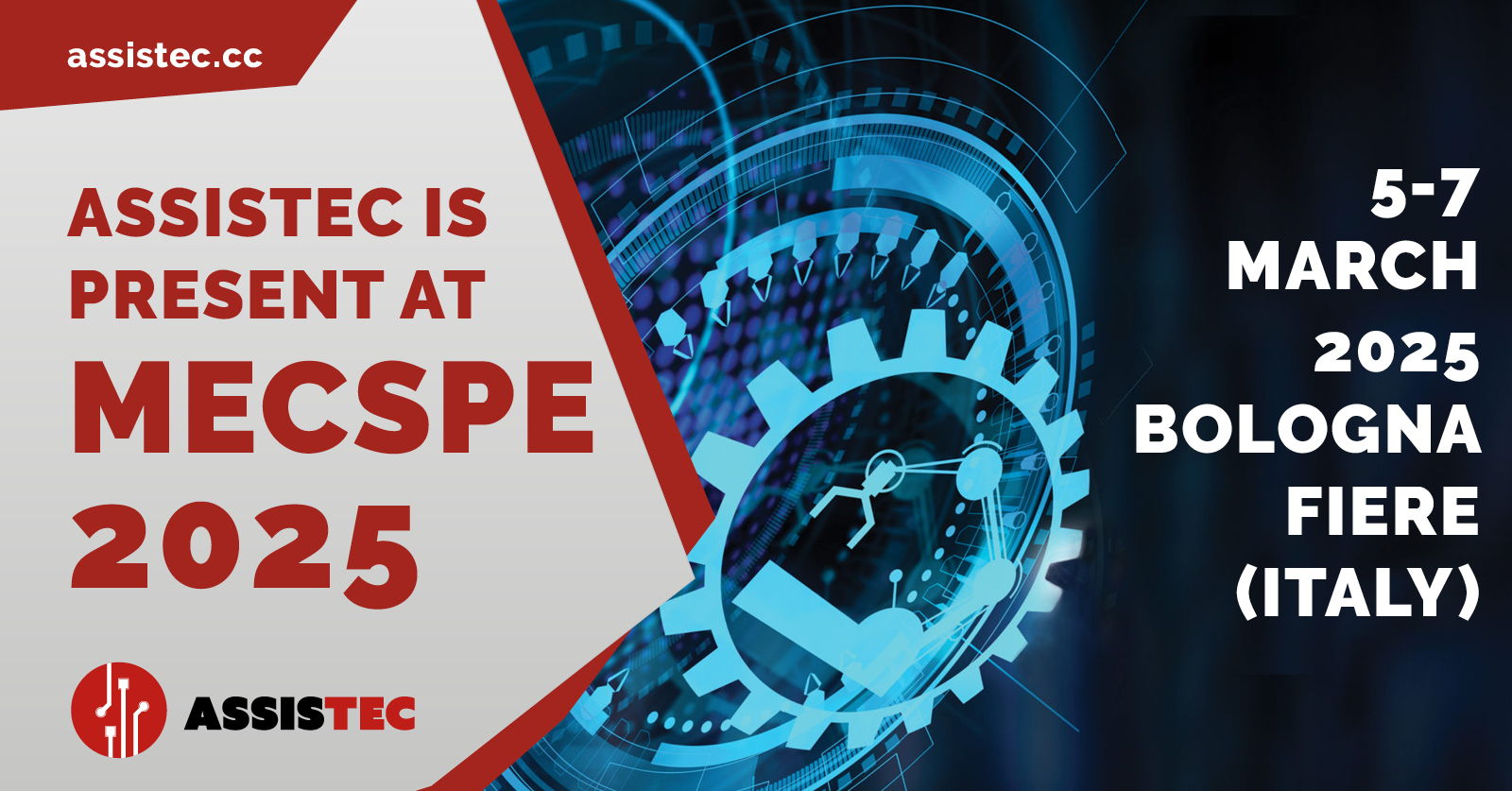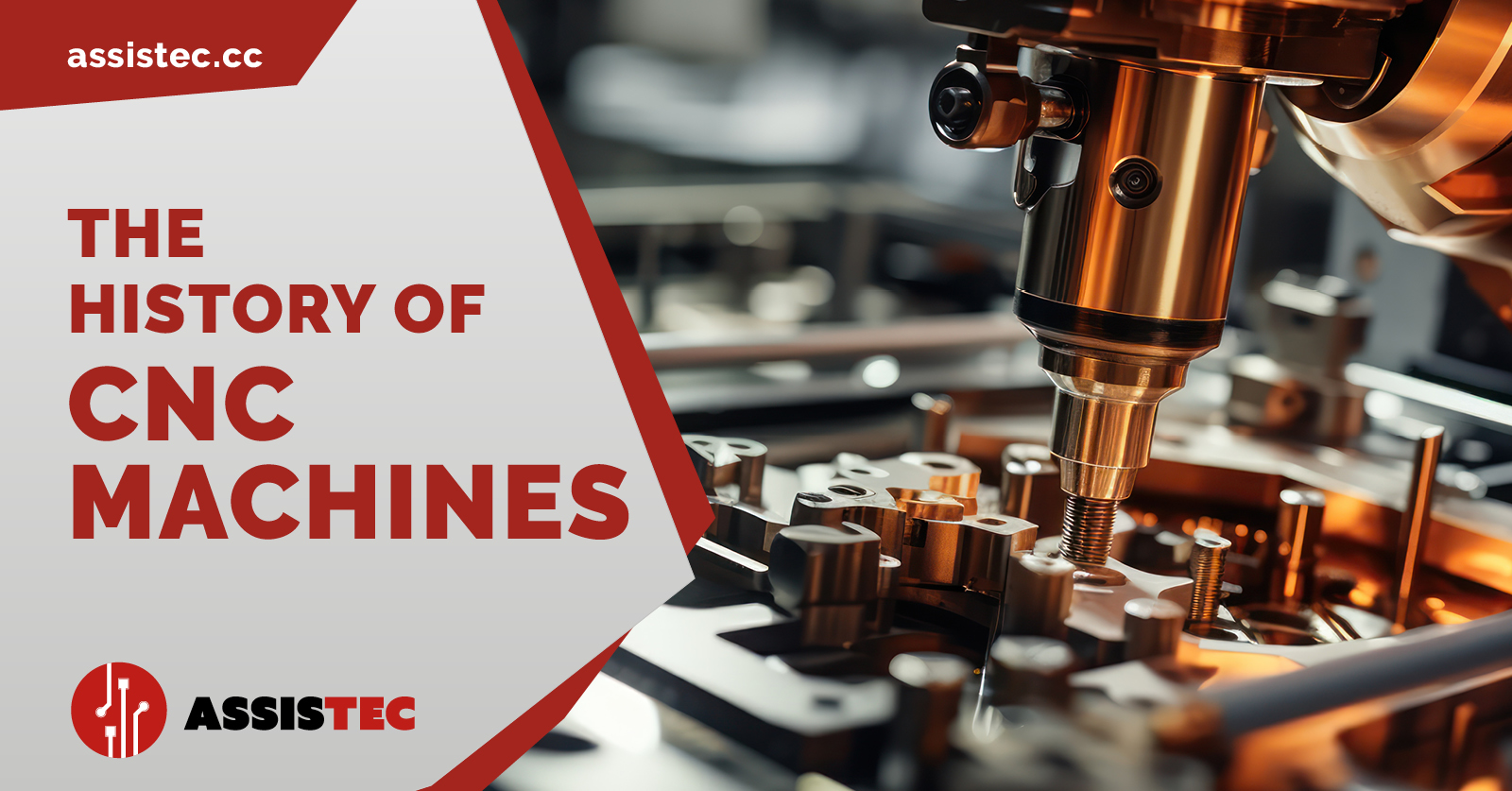Regeneration of Electronic Spare Parts is the first step towards Sustainability

Regeneration of Electronic Spare Parts is the first step towards Sustainability
Sustainability is a challenge for Assistec's future
Nowadays, there is a lot of discussion about environmental and social sustainability, raising various questions about how we can achieve the goals laid out in the Agenda 2030, which was drawn up and signed by the United Nations. In a global context where it is necessary to bring about change, we at Assistec are increasingly recognising the importance of embracing an innovative mindset based on the concepts of Sustainability and Circular Economy.
We are aware of the change that is coming and understand that the road ahead is very long. It demands careful decision-making, considering the needs of all components that comprise our reality in order to avoid falling into the trap of greenwashing.
Starting with the concept of Circular Economy, defined by the European Union itself as “a model of production and consumption, which involves sharing, leasing, reusing, repairing, refurbishing and recycling existing materials and products as long as possible. In this way, the life cycle of products is extended, contributing to reducing waste to a minimum”, we at Assistec recover items from our product range, recondition them and make them available to be resold through our online shop or installed by our technicians.
Regeneration of Fanuc and Mitsubishi Drives, Motors, Boards and Power supplies
There is a department within our organisation that is fundamental and the beating heart of our company: the Electronic Repair Workshop. The main task of this department is to integrate external support with a service that enables customers to minimise downtime and control costs effectively. This is made possible by using regenerated electronic spare parts, backed by warranties.
The range of Fanuc and Mitsubishi is very wide, and includes axis and spindle drives, numeric controls, power supplies, peripheral boards, graphic boards, operating panels, motors, robot drives, industrial computers, hydraulic control units, cooling units and everything else that is part of the CNC world.
In addition to repairs, the workshop's task is to regenerate products, , making them readily accessible in our stock and available for direct purchase from our Shop Online.
The majority of regenerated items are Fanuc and Mitsubishi Axes, Robots and Spindle Drives.
How does the regeneration process work?
When drives arrive at our company from external sources, they often carry residues of oil, dust, dirt and oxidation, which can impact their reliability and proper functioning. Consequently, the regeneration process begins with a thorough washing and drying of the individual components.
This is followed by repairing any damaged parts and conducting a complete overhaul, which involves replacing all components subject to deterioration over time. The critical and final step entails subjecting the drive/motor to a load test.
This step serves two important purposes: to identify any defects that may not have been apparent during the overhaul phase and to provide customers with a warranty of up to 24 months. In addition to our warranty stamp affixed to the regenerated article, an identification barcode is also included, which captures the entire "history" of the drive/motor.The entire regeneration process requires three working days and ensures that a vast selection of spare parts are readily available in our warehouse.
For further information on the regeneration of our products, please don't hesitate to contact us or call us at+39 0522 989436. Our team of experts will be able to provide you with all the information you need.
Recent Posts

-
Assistec is your partner with over 25 years of experience in full service for CNC machine tools, offering both electronic and mechanical technical support. Our main objective is to minimise machine downtime, ensuring a rapid return to production and an efficient return on investment.
CNC electronic support services: rapid diagnosis and effective solutions
Our electronic service on CNC machine tools is characterised by a comprehensive service that begins with a thorough prior telephone diagnosis by our service department. This initial phase is crucial to quickly understand the nature of the problem. Thanks to our well-stocked electronic spare parts warehouse, we are often able to resolve the fault already during the first technical intervention.
-
MECSPE 2025 is one of Europe's leading trade fairs dedicated to innovation in the manufacturing industry. It is a crucial event for companies that want to stay up-to-date with the latest technologies, solutions and trends in the industry.
Over the years, MECSPE has helped transform artisanal processes into large-scale precision industrial systems. Today, the show serves as a meeting point for machinery manufacturers, technology suppliers, system integrators, and end users, creating an ideal environment for networking and knowledge exchange.
MECSPE is essential to discover how to automate and digitise production processes, improve efficiency, reduce costs and increase competitiveness. In this context, Assistec has decided to play a leading role once again, confirming its presence also in the 2025 edition.
-
Numerically controlled (CNC) machines represent one of the most important technological innovations of the modern industrial era.
Their ability to automate and standardise complex operations has changed the face of manufacturing, transforming craft processes into large-scale industrial precision systems.
The spread of CNC machines has made it possible to reduce human error, increase productivity and, above all, guarantee repeatability of machining operations that would otherwise have been impossible. This has proved particularly crucial in sectors where precision, efficiency and speed are vital, such as aerospace, automotive, precision engineering and medical device manufacturing.
One of the main reasons for the success of CNC machines is their ability to perform tasks with extreme precision that previously required the manual intervention of skilled workers.
With CNCs, on the other hand, once the machining has been programmed, the machine can perform an infinite sequence of operations without loss of precision, solving problems of variability and improving the quality of the finished product.
At this point, the question might arise: when did CNC machines originate and how did they reach this level of sophistication?




